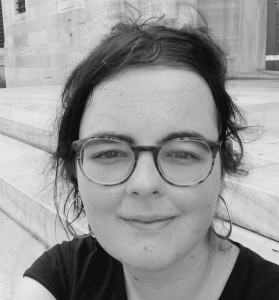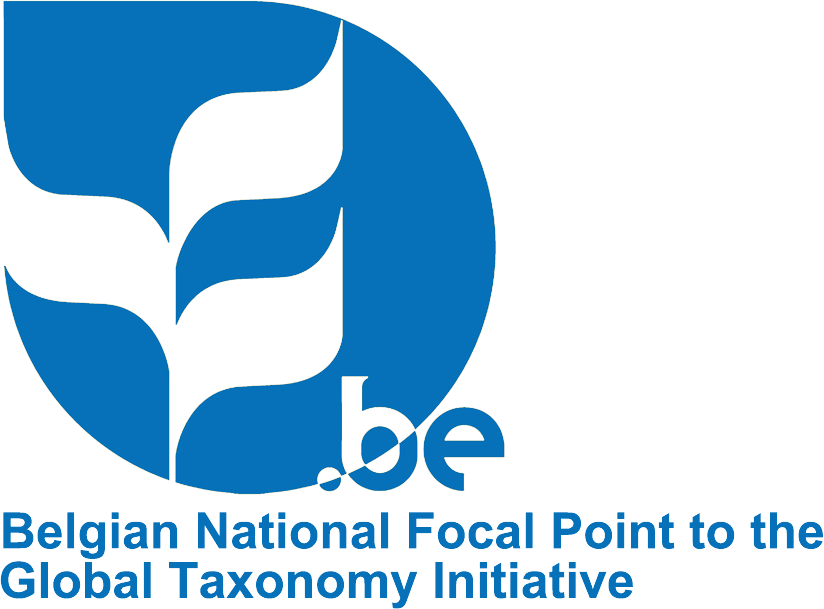About the Belgian GTI Focal Point
The Belgian National Focal Point (NFP) to the Global Taxonomy Initiative (GTI) under the United Nations Convention on Biological Diversity (CBD) is housed at the Royal Belgian Institute of Natural Sciences (RBINS).
As part of the CEBioS programme, the GTI-NFP mainly aims at strengthening the taxonomic and curatorial capacities of scientists from partner countries of the Belgian Development Cooperation to support biodiversity research and monitoring for improved natural resource management and conservation, and sustainable local livelihoods.
Home » About us
Our program in short
In 2001, in pursuance of COP decision V/9 – paragraph 4, Belgium designated the Royal Belgian Institute of Natural Sciences (RBINS) as the National Focal Point (NFP) to the Global Taxonomy Initiative (GTI) to support the implementation of the Convention on Biological Diversity (CBD).
More specifically, the Belgian GTI-NFP is part of the CEBioS programme within the BIOPOLS group of the Operational Directorate Natural Environment (OD Nature) and is financed by the Belgian Development Cooperation (DGD). It operates under the umbrella of the Belgian NFP to the CBD.
The Belgian GTI programme is among the core Capacity Development activities of CEBioS and underpins all four of its Strategic Objectives.
The overarching goal of the Belgian GTI is to develop or strengthen taxonomic and curatorial capacities, and expand the scientific knowledge base on biodiversity and its linkages with ecosystem services and poverty reduction in partner countries of the Belgian Development Cooperation.
Read further here to learn more about what GTI stands for and how/why it was established.
Vision
The Belgian GTI wants to contribute to resolving the so-called “taxonomic impediment” – more precisely, the gaps in our taxonomic systems, the shortage of trained taxonomists and curators, the unequal access to taxonomic information and collections, and the unequal availability of taxonomic infrastructure – which hinders the implementation of the CBD, especially in megadiverse developing countries.
More information on the taxonomic impediment and the rationale of the GTI can be found here.
Ultimately, concerted actions to increase taxonomic capacities should enhance national reporting processes and the development of National Biodiversity Strategies and Action Plans (NBSAPs), and enable our partner countries to take well-informed decisions regarding the management and sharing of the benefits of their biological diversity. This will be instrumental in improving livelihoods and in achieving the goals and targets of the post-2020 Global Biodiversity Framework (GBF).
Mission
The mission of the Belgian GTI Focal Point is fourfold:
- Strengthening the taxonomic and curatorial capacities of partner countries of the Belgian Development Cooperation by providing training in taxonomy and collection management, and publishing dedicated manuals;
- Improving access of researchers from developing countries to scientific literature, databases and collections (held in Belgium or elsewhere) to expand their knowledge on the components of their national biodiversity;
- Raising awareness among concerned stakeholders, including local populations and policy makers, on the importance of and the measures required for the monitoring and conservation of their national/local biodiversity;
- Engaging in the (inter)national dialogue, i.e., in the development and operationalization of GTI-related strategies at the international and national level, mainly in the context of the Convention.
Team
Several people contribute on a recurrent basis to the daily operations of the GTI-NFP:

Pierre Huybrechts
Pierre is the scientific programme officer responsible for the coordination of the GTI activities. He has actively been involved in “bridging the gap” between biodiversity-science and policy and is now very keen to contribute to reducing the taxonomic impediment. Pierre is a PR expert, specialised in European Affairs.
- phuybrechts[at]naturalsciences.be

Dr. Luc Janssens de Bisthoven
As the coordinator of the CEBioS program, Luc keeps track of the progress of the GTI activities and provides support on content-related matters. Luc is an aquatic ecotoxicologist.
- ljanssens[at]naturalsciences.be

Dr. Hendrik Segers
Hendrik is in charge of the Belgian CBD‑NFP. He oversees and provides input to all Belgian activities under the CBD, including those of the Belgian GTI. Hendrik is an expert in rotifer taxonomy.
- hsegers[at]naturalsciences.be

Dr. Yves Samyn
Yves is Editor-in-Chief of the capacity-building journal AbcTaxa, one of the main products of the Belgian GTI‑NFP. Yves is also conservator of the Recent Invertebrates (non insects) Collections at RBINS and a former coordinator of the GTI‑NFP (until 2011). His field of expertise is holothuroid taxonomy.
- ysamyn[at]naturalsciences.be

Ir. Han de Koeijer
Han is the Belgian Focal Point to the Clearing-House Mechanism (CHM). He provides punctual technical support to the Belgian GTI‑NFP. Han is a tropical forest ecologist and nature conservationist.
- hdekoeijer[at]naturalsciences.be

Mr. Vincent Pinton
Vincent handles the accounting of the Belgian GTI‑NFP (and of CEBioS in general). His assistance is invaluable in ensuring the smooth execution of the GTI activities.
- vpinton[at]naturalsciences.be

Ms. Esther Roex
Because of her dedication to sustainability and biodiversity, Esther works as the Secretary of the Belgian CBD‑NFP. She assists the Belgian GTI‑NFP with administrative and logistic tasks. Esther holds a Master’s Degree in History.
- eroex[at]naturalsciences.be



These people were previously involved in the GTI activities and greatly shaped the programme’s format:
- Marie-Lucie Susini – GTI‑NFP 2009-2020 (coordinator since 2012)
- Kristien Vrancken – Graphic design 2007-2016
- Anne Franklin – CBD‑NFP 2001-2012 (coordinator since 2008)
- Jackie Van Goethem – CBD‑NFP 1996-2008



